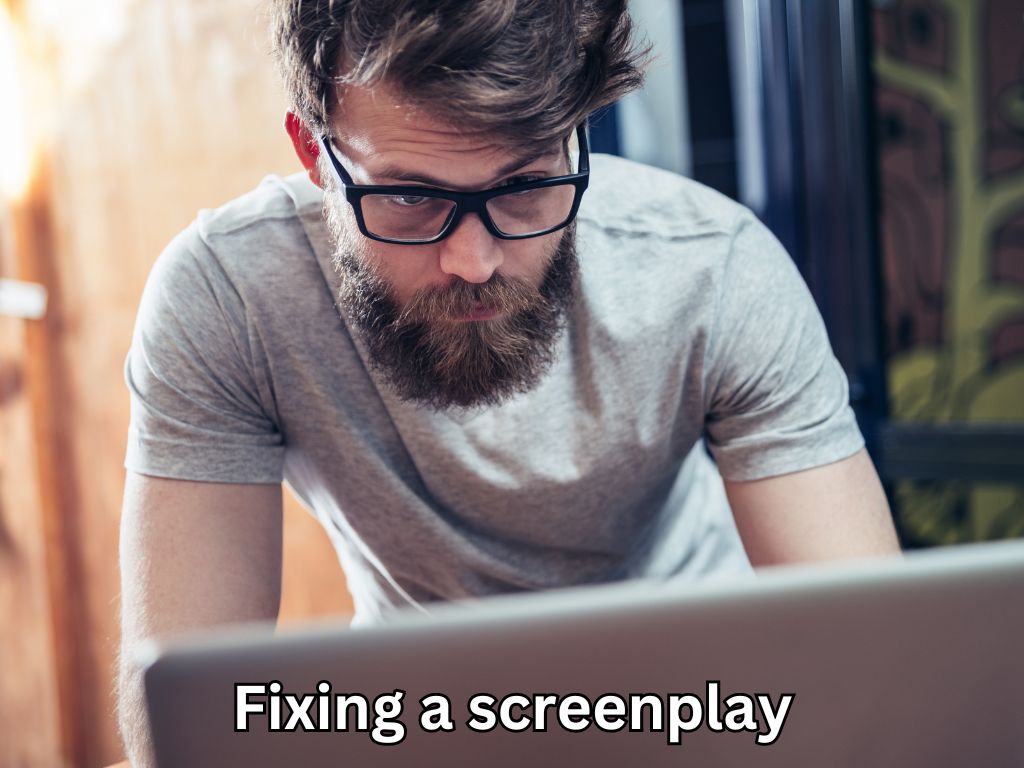
Script Doctoring by Lisa Montalto (Article courtesy of Ghostwriters Central, Inc.)
Does your script need to see the doctor? Most scripts do before they will appeal to a director or production team. The best way to describe script doctoring is that it’s a check-up for your script. A script doctor will thoroughly examine your script, ensuring everything works together. They fix what’s wrong and make everything better.
The first thing script doctors will do is assess the entire script as a whole. Once they get a feel for the story, they go to work. Dialog is one of the most important aspects of a script and can make or break a film. Even the best actors might not be able to bring much to boring, cliche, or clunky dialog. A good script doctor will punch up the conversation, making it more succinct and witty. Often a novice screenwriter doesn’t realize that each character must have their own voice and that is shown through unique dialog. If all the characters speak in the same tone or style, the film will be very flat.
Each character may use words throughout the script that are specific to them and no one else. That is what makes dialog great. Take the film, Psycho. Norman Bates had a very distinct way of speaking. His words were carefully chosen when he spoke to women and he spoke in a very charming but timid way. This is in stark contrast to Marion Crane who was straight to the point, sometimes even blunt. In Quentin Tarantino’s Once Upon a Time in Hollywood, Brad Pitt’s character Cliff Booth was more chill compared to anxiety-ridden Rick Dalton played by Leonardo DiCaprio. Not only was it shown in their style of dress, but in the words they spoke. This is called character development and is very important to a film.
The script doctor will punch up dialogue but also keep in mind that not all dialog will be or should be grammatically correct because not everyone speaks that way. The dialog needs to be natural and also match the era and location of the film. If it’s taking place in the South, it’s important to remember that the characters will speak with a Southern accent. They might say “y’all” when referring to everybody. Some characters may use the word “ain’t” and most people use “can’t” versus “cannot,” or “won’t” versus “will not.” The only time grammar counts in a script is in the narrative.
The script doctor will also ensure that there is a character arc for each character. This means the character should grow and change in some way by the end of the film. One of the best examples of this is the character Elle Woods in Legally Blonde. Elle, played by Reese Witherspoon, is treated as a dumb blonde at the beginning of the movie and when her boyfriend dumps her, she proves him and everyone else wrong by getting into Harvard. She learns that looks aren’t everything and that she’s smart enough to do anything she wants. Dialog played a big part in taking Elle from a fashion-obsessed girl to a confident, educated woman.
Script narrative is another important element of a script. It’s what sets the tone for the scenes and keeps the film moving. These narratives need to flow and transition seamlessly from one to the other. One mistake some screenwriters make is when their scene descriptions are too long or don’t provide the most pertinent information. A script doctor will go in and tighten it all up. This is where each character is introduced and where we set the stage. Where is this scene taking place? Who’s in it? What does it feel like at this moment … is there warmth, is there tension, is it foreboding? The director should be able to create the scene and pull the emotion from reading the narrative.
A script doctor will also check for accuracy as it pertains to the context of the script and the era in which it’s set. If your film is set before the year 2000, everyone can’t be walking around with smartphones and earbuds. The correct choice of what the characters are doing, such as watching on TV (if there even were TVs in the era that the script is taking place), the music they listen to, and on which type of device they listen to it, what they wear, and more, are crucial. All these things are very important elements of a script that a script doctor will polish.
In the end, a script doctor is an editor with a specific skill set who will make your script ready for the next step. They will polish the script to make it nice and shiny so it stands out among the many scripts that directors and studios see on a daily basis. And they always fix the boo-boos!







